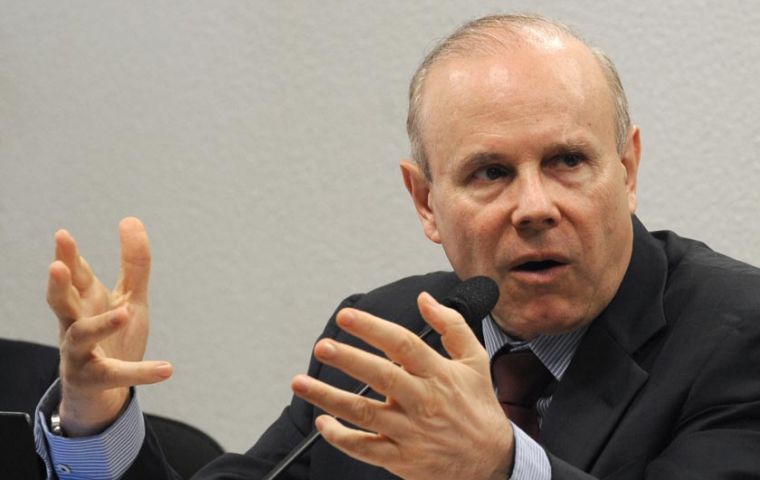MercoPress. South Atlantic News Agency
G-20 agree to cut budget deficits without stunting economic growth
 Brazil’s Guido Mantega warned that budget cuts in rich countries would hurt export dependent economies
Brazil’s Guido Mantega warned that budget cuts in rich countries would hurt export dependent economies Leaders at the G20 summit in Canada have agreed to cut national budget deficits without stunting economic growth. Summit host Prime Minister Stephen Harper said the group's richest members should halve their deficits within three years.
Correspondents note that every major G20 country had already committed to that target before the summit. Proposals for a global levy on banks have been dropped, Mr Harper said. Instead, that will be left to individual countries.
Mr Harper also said government debt, as a proportion of the economy, “should be at least stabilised or on a downward trend by 2016”.
He added: “All leaders recognise that fiscal consolidation is not an end in itself. There will be a continued role for ongoing stimulus in the short term as we develop the framework for strong sustainable and balanced growth.”
Speaking to reporters after the summit, US President Barack Obama said tighter regulations, including bigger capital requirements for banks, would be addressed at the next G20 summit in Seoul, South Korea, in November.
Addressing a reporter's question, Mr Obama said he expected China's currency to rise in accordance with its recent commitment to let the Yuan float more freely against the dollar.
“A strong and durable recovery also requires countries not having an undue advantage. So we also discussed the need for currencies that are market-driven,” he said.
“As I told President Hu yesterday, the United States welcomes China's decision to allow its currency to appreciate in response to market forces.”
But China resisted including a line in the summit's final statement on its currency commitment, saying it was a sovereign matter.
British PM David Cameron, attending his first summit since becoming UK prime minister last month, said the stalled Doha round of global trade talks may need to be broadened in order to make progress.
“I totally support the completion of Doha, but we are not making progress and we need to do things in a different way so that these eight years of negotiation can be brought to a conclusion,” said Mr Cameron.
The group of 20 leading and emerging nations had been split over the pace of budget cuts. US President Barack Obama warned against fast and deep budget cuts, fearing damage to global growth.
But European members, including the UK, France, and Germany, have already led moves to slash record public deficits, despite opposition from the United States which is saddled with a 1.3 trillion US dollars debt.
Emerging economies such as Argentina and Brazil had worried that budget cuts in rich countries would hurt their export-dependent economies.
“If the cuts take place in advanced countries it is worse,” said Brazilian Finance Minister Guido Mantega. “Because instead of stimulating growth they pay more attention to fiscal adjustments and if they are exporters they will be reforming at our cost.”
Outside the summit venue in downtown Toronto, police and protesters clashed for a second day on Sunday. The Canadian Broadcasting Corporation reported that police fired rubber bullets at one point to disperse a crowd of about 150 protesters.
On the margins of a major march through Toronto on Saturday, some black-clad and hooded protesters smashed shop windows and set alight at least two police cars. Police arrested more than 500 people over the weekend. (BBC).-




Top Comments
Disclaimer & comment rules-

Read all commentsHmmm .... no pick up of the British press from yesterday then?
Jun 28th, 2010 - 03:46 am 0Commenting for this story is now closed.
If you have a Facebook account, become a fan and comment on our Facebook Page!